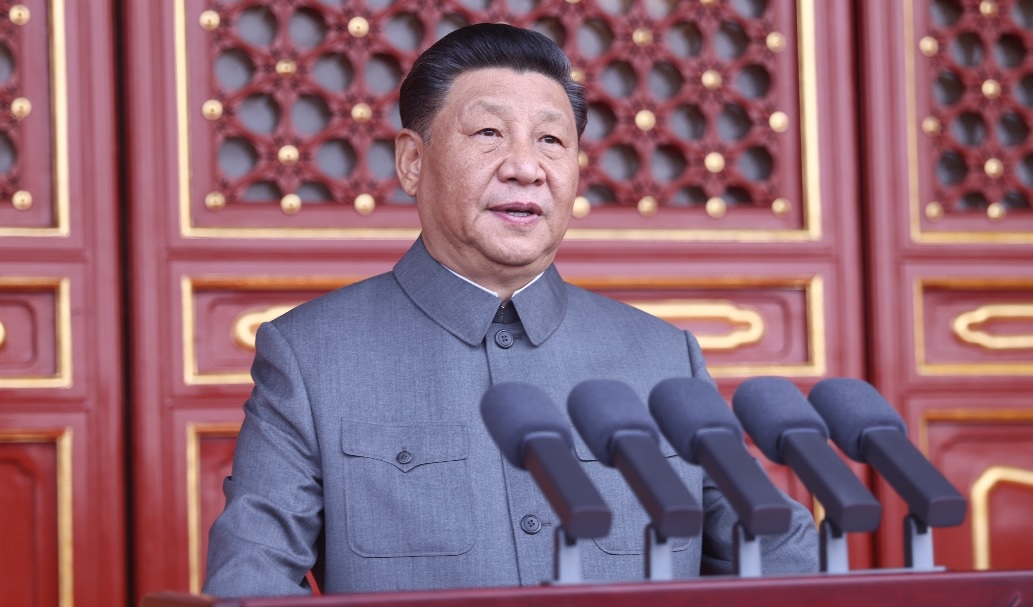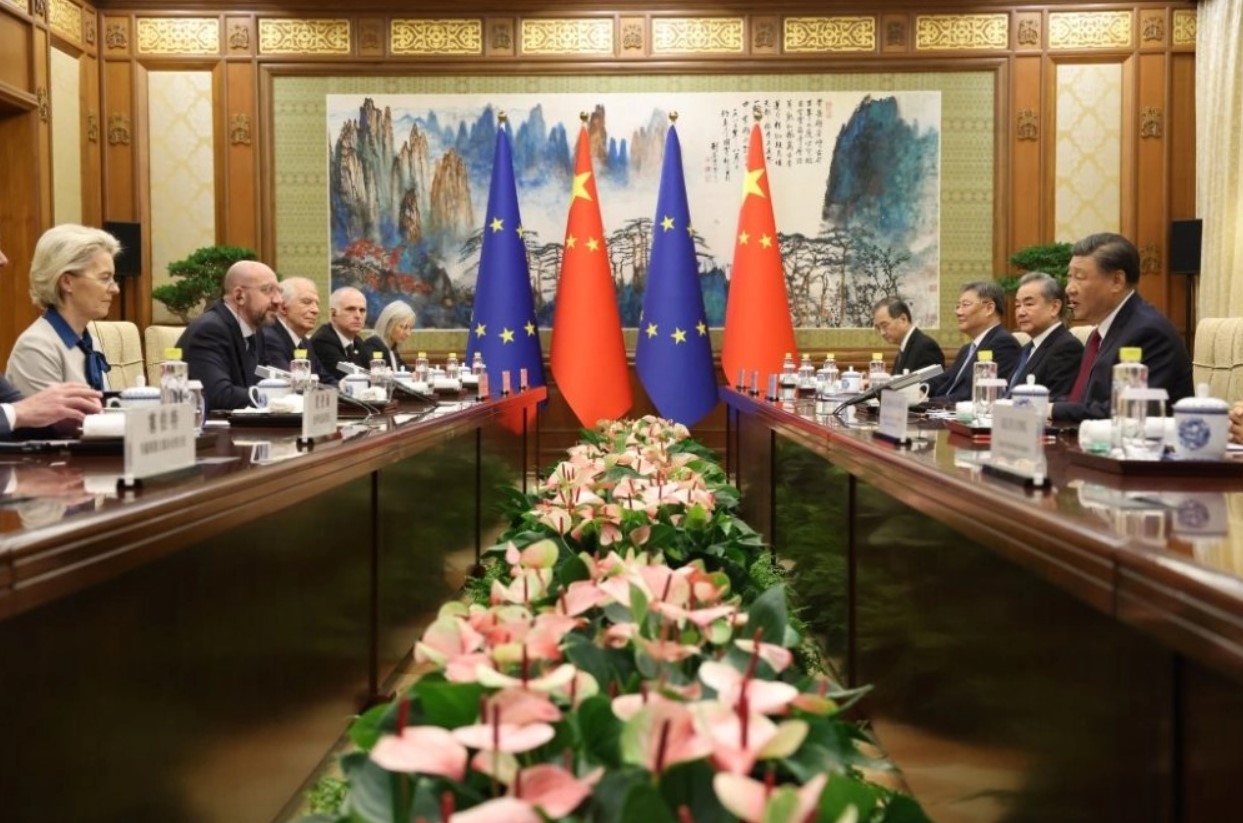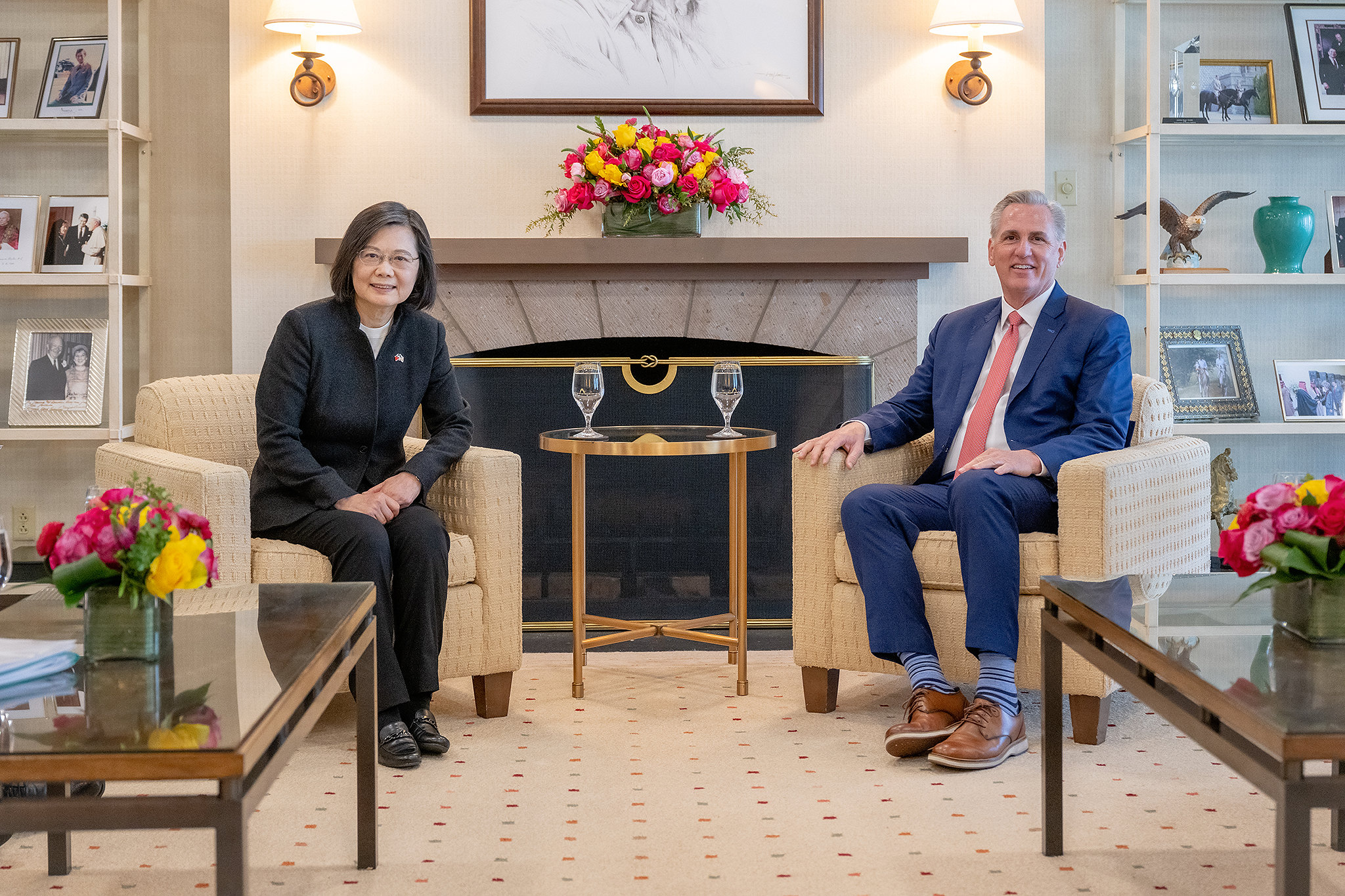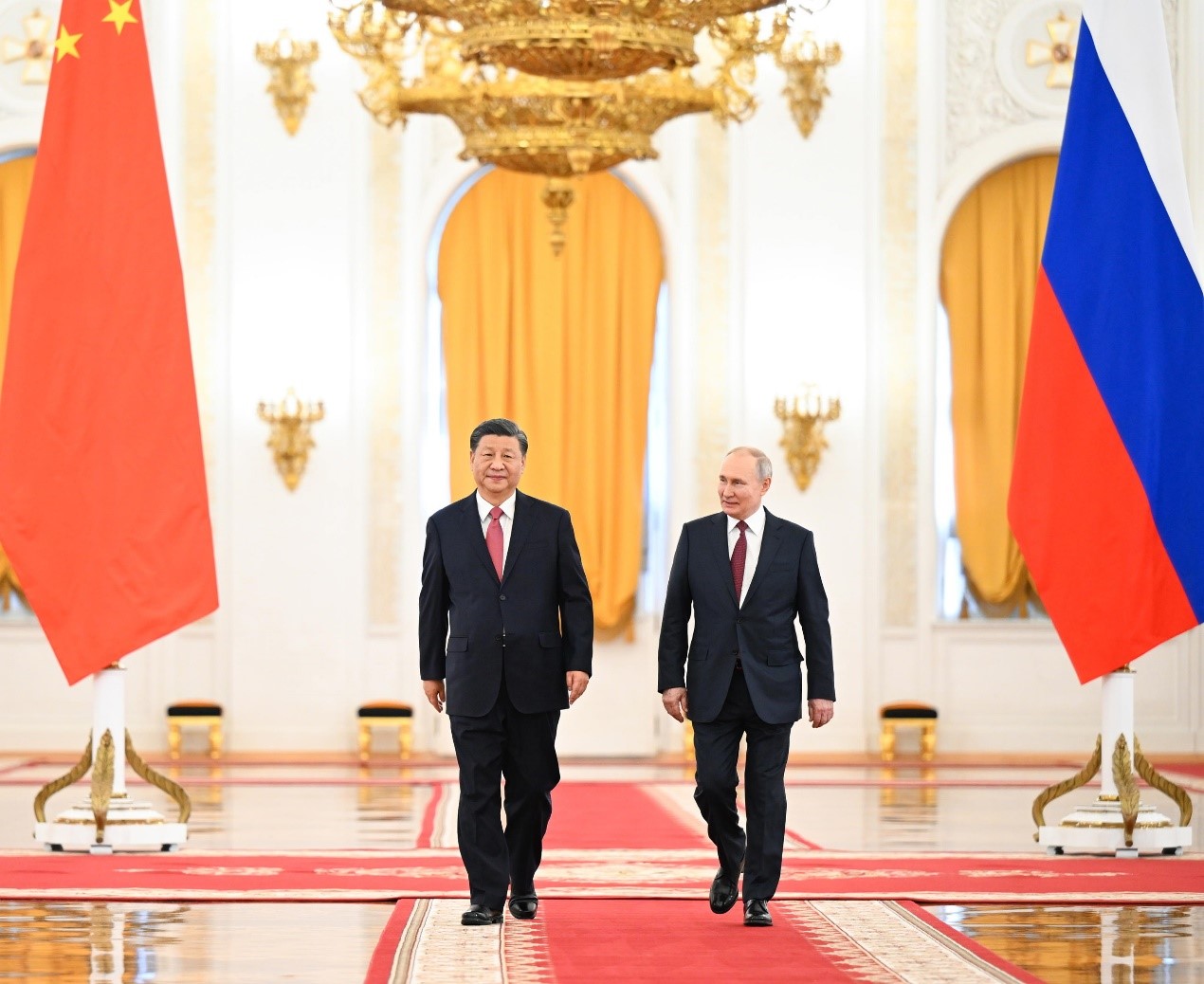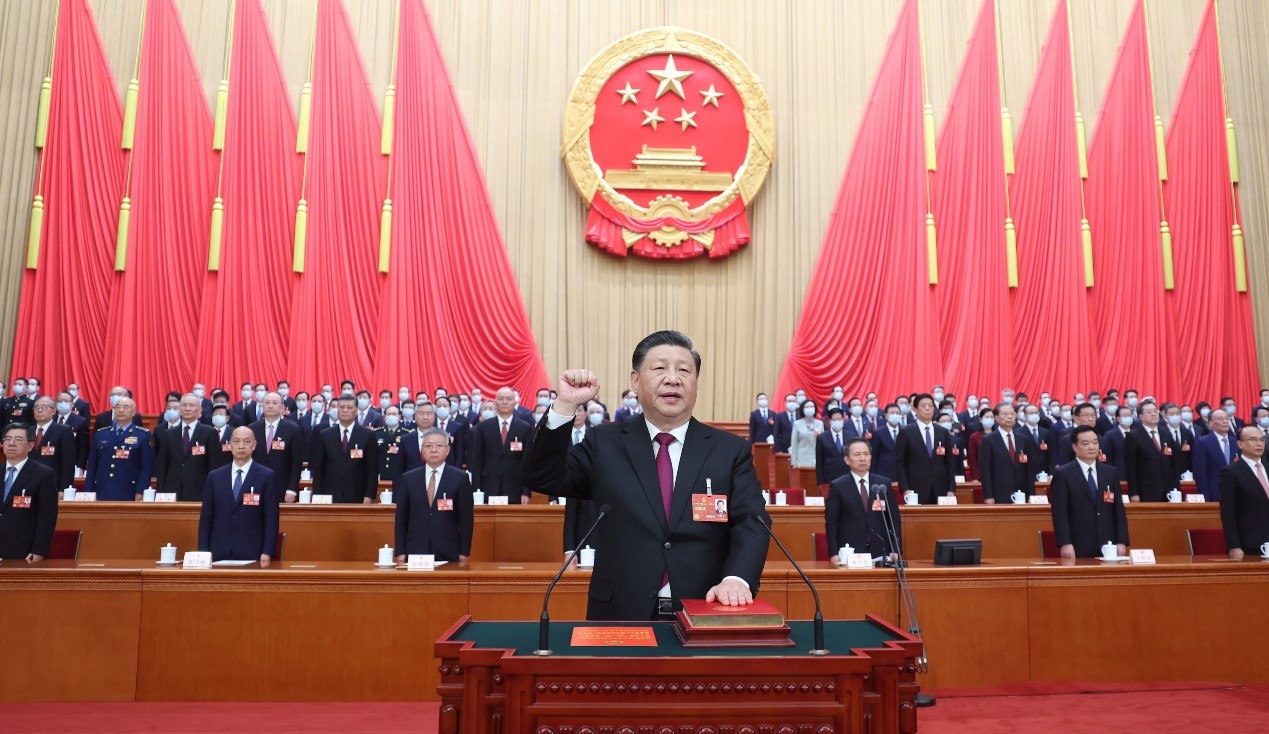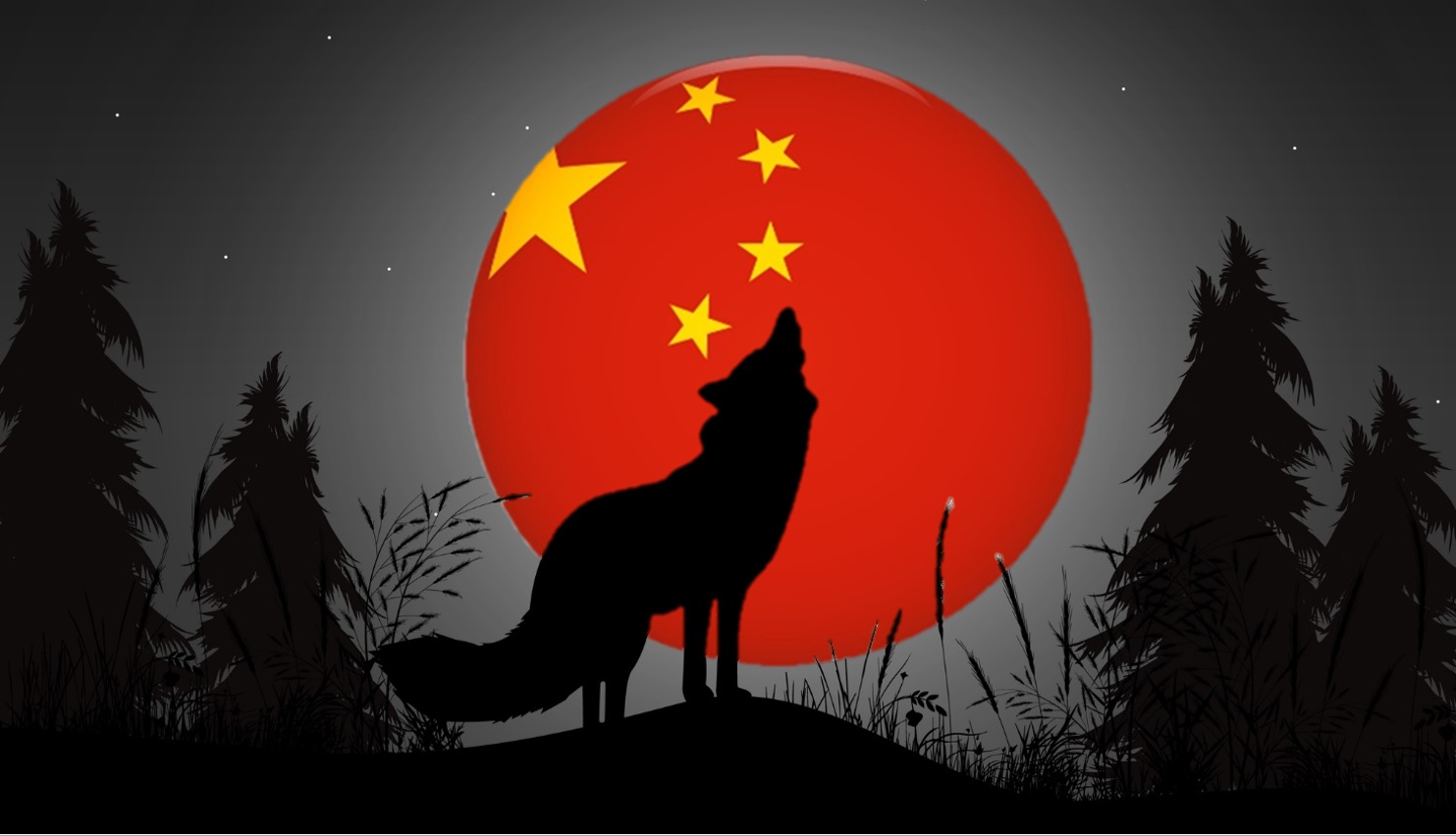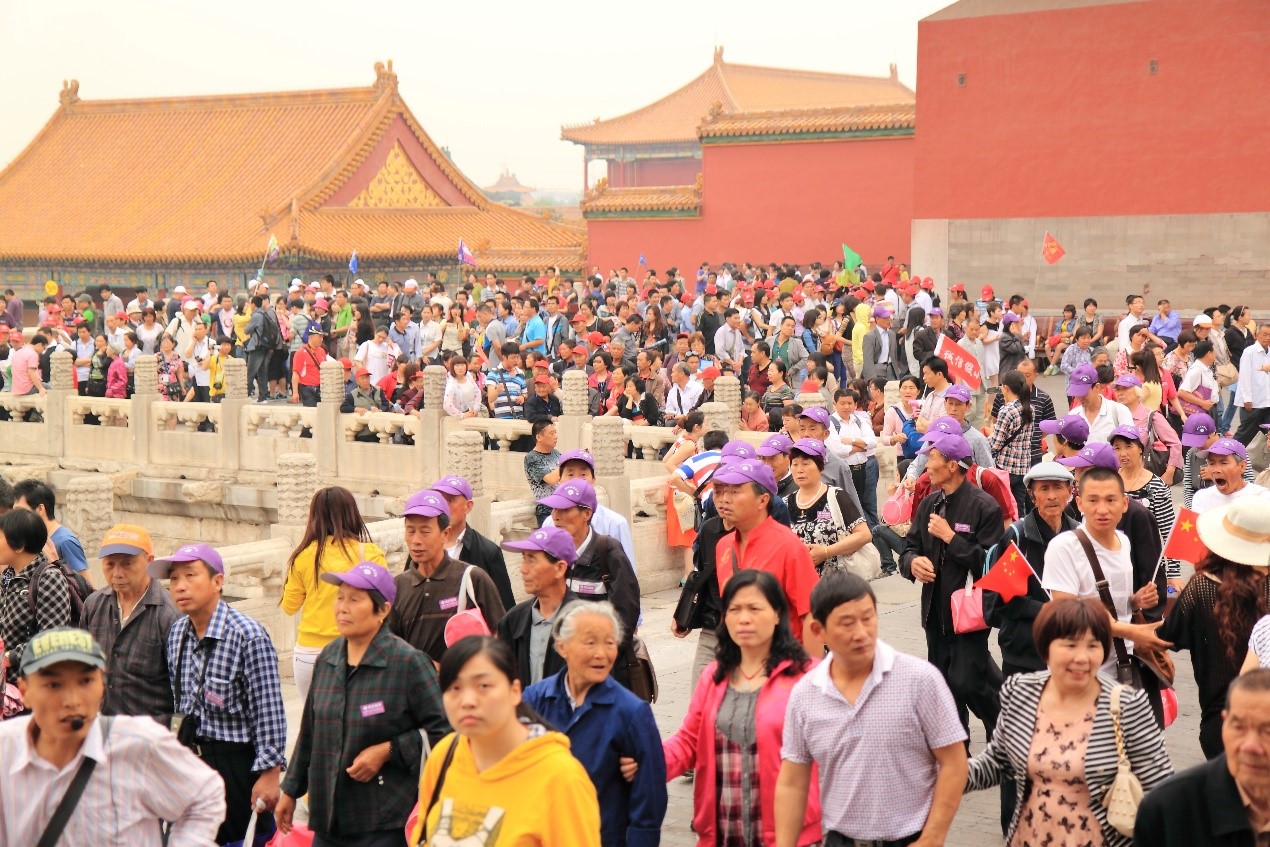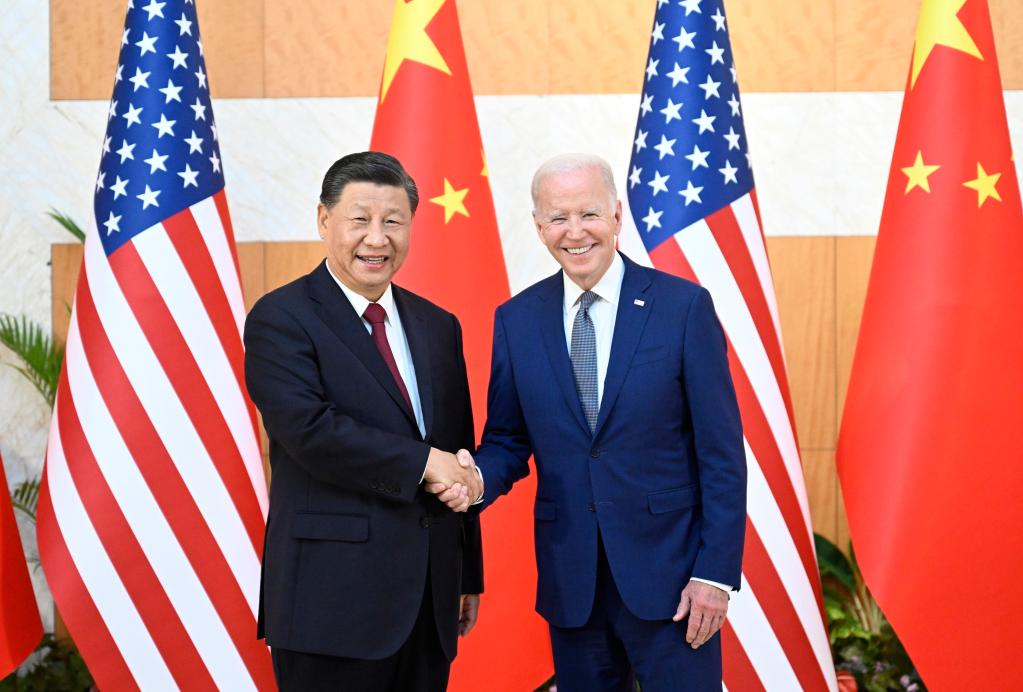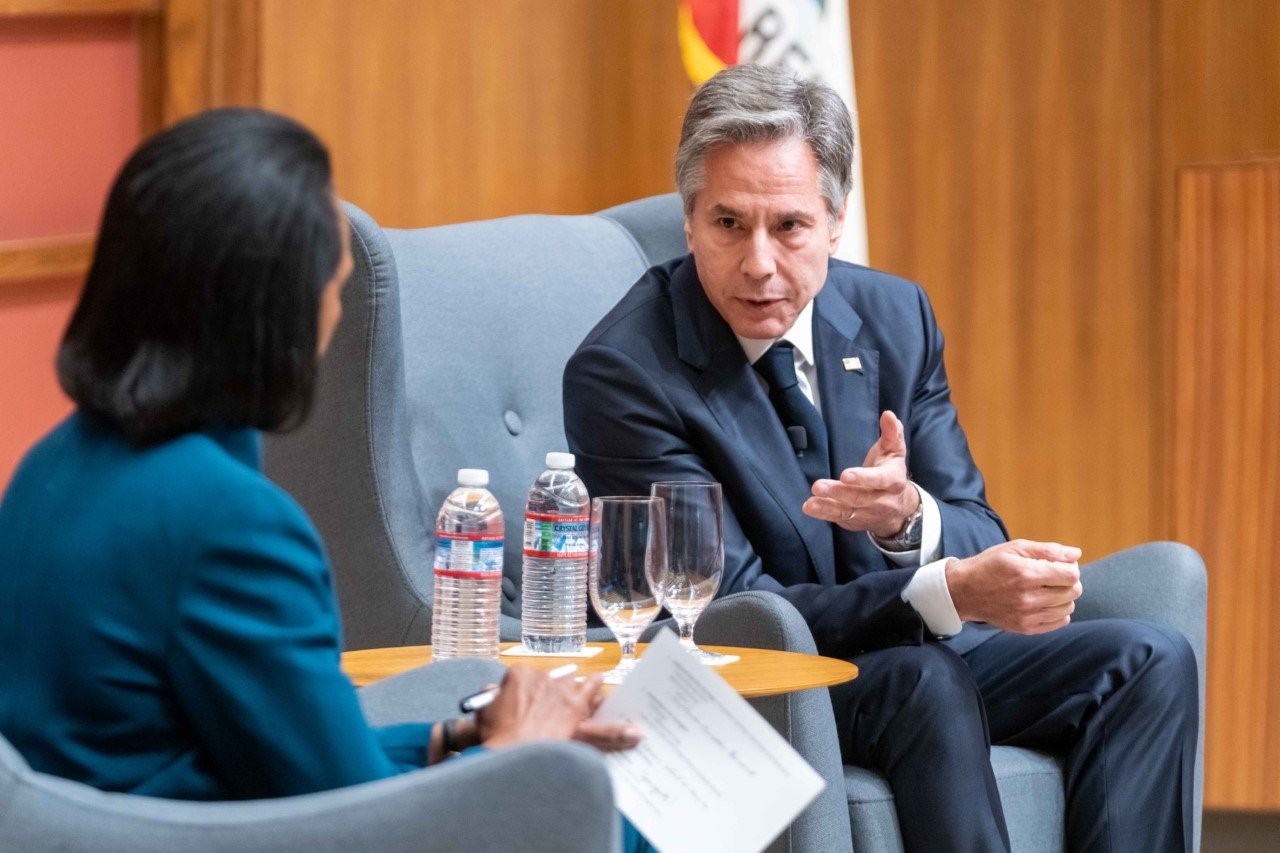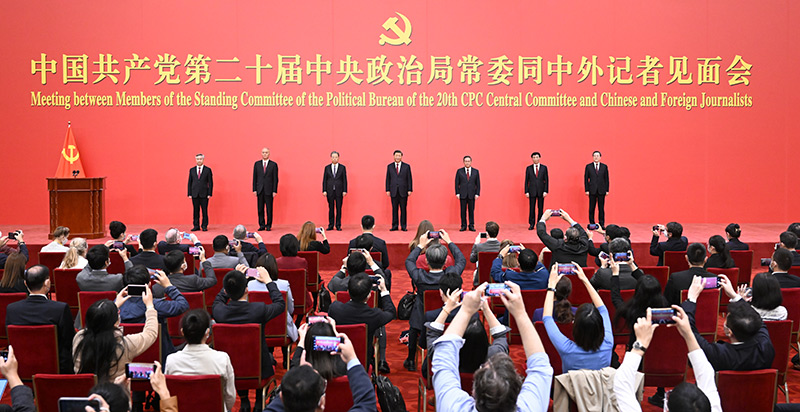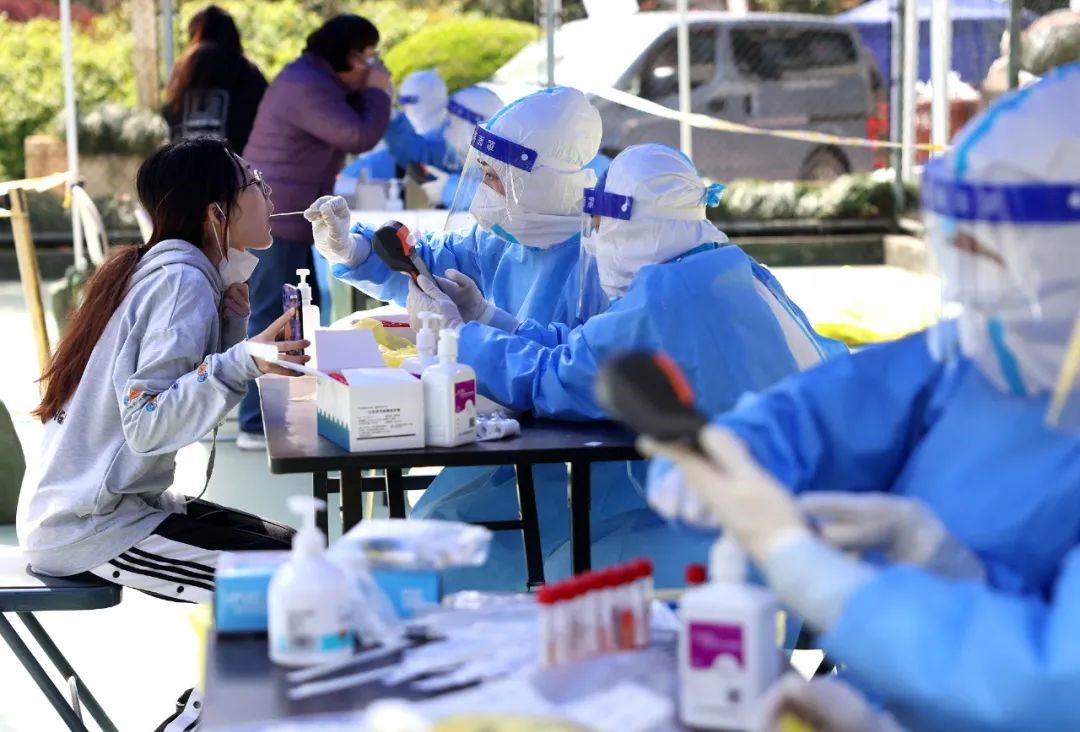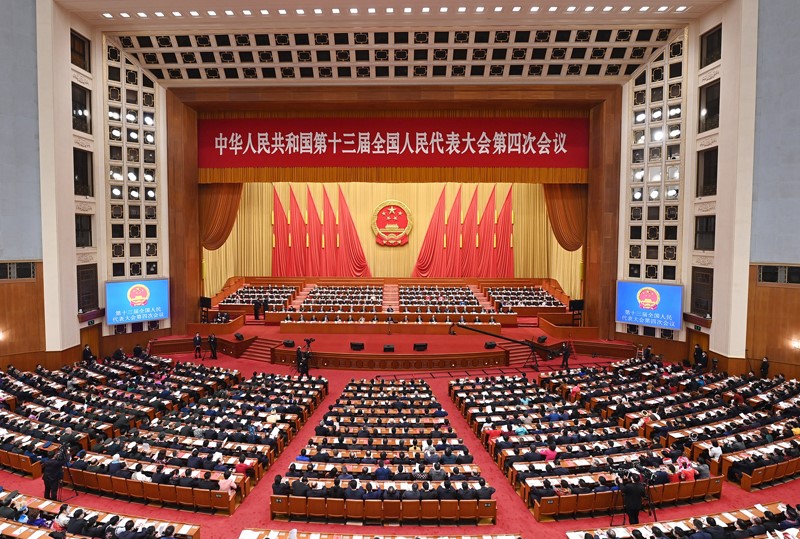CCP leader Xi Jinping’s speech during the 100th anniversary ceremony of the founding of the CCP was long on self-serving ideology and revisionist history. One wonders if his show of strength may unintentionally reveal fear and weakness—for himself and his Party. Picture Source: 共產黨員網, July 1, 2021,《共產黨員網》, https://www.12371.cn/special/jdbnjh/
Prospects & Perspectives 2021 No. 36
Xi’s Bluster Reflects Fear
By Christian Whiton
July 16 2021
Chinese Communist Party leader Xi Jinping is nothing if not predictable. His 5,000-word speech during the 100th anniversary ceremony of the founding of the CCP was long on self-serving ideology and revisionist history. One wonders if his show of strength may unintentionally reveal fear and weakness—for himself and his Party.
Unlike all his predecessors, figuring out what Xi will do in any given situation is remarkably easy. He will always take the hard line. Whether dealing with Taiwan, Hong Kong, rival factions, military posture, or internal control, Xi will always choose the most aggressive, unflinching, and non-nuanced path available, as long as it is consistent with the capabilities at his disposal.
While determination like this can be a trait of good leadership, it can also be a flaw, especially when it turns to fanaticism and bad outcomes. A dialogue in the 2000 movie The Patriot comes to mind, in which Mel Gibson’s character, fighting the British in the American Revolution, concludes that his haughty opponent, General Cornwallis, is a military genius but has an exploitable flaw: “Pride. Pride’s a weakness.” His French military adviser sarcastically responds: “Personally, I would prefer stupidity.”
Indeed. But for his unflinching and resolute hard line, Xi has surprisingly little to show. Furtive initial steps to curb freedom in Hong Kong sparked a mass movement for democracy that made it unmistakably clear again that Chinese do not want CCP control. Considering China’s promise to respect Hong Kong’s freedoms and relative autonomy, the subsequent crackdown there that put democracy movement leaders and media figures like Jimmy Lai in prison has proven to the world that China’s word cannot be trusted. It has also relegated a global financial capital to second rate.
Xi’s aggression toward Taiwan has caused many of those in the country who favored closer ties with China to change their minds or face political oblivion. Xi’s military buildup and bellicose language has caused a requiem for American power in the Pacific and nearly every country in the region, from Japan to Australia, is increasing its military capabilities to deter China.
The idea that China is better off under Xi is difficult to prove, and Xi probably knows this. Certainly his skeptics in the CCP do. Therefore he fell back on ideology and falsified history.
There was of course no reference in the speech to tens of millions of Chinese deaths on the Party’s CV, nor an apology for the Great Leap Forward or Cultural Revolution that ran up the body count, or thanks to the Kuomintang for pushing Imperial Japan out of China. In fact, Xi venerated Mao Zedong repeatedly and even talked up “Mao Zedong Thought.” Soviet leader Nikita Khrushchev was confident enough in his “Secret Speech” to disavow elements of Joseph Stalin’s rule just three years after the dictator’s death in 1953. Forty-five years after Mao’s death, neither Xi nor any of his contemporaries dare risk an ounce of honesty about Mao. Is this denial rooted in fear of what some candor might unleash?
Xi fell back to mind-numbing doctrine repeatedly during the speech. One such gem: “On the journey ahead, we must adhere to the Party’s basic theory, line, and policy, and implement the five-sphere integrated plan and the four-pronged comprehensive strategy.” In reading the line, I found myself wishing again that I spoke Mandarin, because the quote must sound better in that language than English.
Xi was only about a minute into his speech before he got to the inevitable reference to the First Opium War and resulting chaos and humiliation that only the Party can apparently prevent. Flogging the theme of national “rejuvenation,” a word he repeated 24 times in his speech, Xi assured listeners that, “the 100-year-long history of the Party, and the more than 70-year-long history of the People’s Republic of China all provide ample evidence that without the Communist Party of China, there would be no new China and no national rejuvenation.” If only there were an ethnically Chinese democratic republic off the coast that could prove Chinese do not need to live under communist servitude to get by and sustain prosperity.
Xi did mention Taiwan, although not in that regard. In the creepiest line of the speech, he offered: “I would like to extend my sincere greetings to compatriots in the Hong Kong and Macao special administrative regions and in Taiwan as well as overseas Chinese.” Compatriots? No thanks. Xi further vowed: “Resolving the Taiwan question and realizing China’s complete reunification is a historic mission and an unshakable commitment of the Communist Party of China.” Such language is routine, but should nonetheless outrage the Free World and be seen for what it is: a threat by an evil and illegitimate regime to risk World War III in order to enslave ever more people who simply want to be left alone.
The sheer number of unblushing lies Xi told was impressive, even for a communist. “We will stay true to the letter and spirit of the principle of One Country, Two Systems, under which the people of Hong Kong administer Hong Kong……” “China has always worked to safeguard world peace, contribute to global development, and preserve international order.” “The Party has no special interests of its own……” And so on.
One oddity was a handful of references to making history, such as: “The people are the true heroes, for it is they who create history.” Strictly speaking, this conflicts with Marxist doctrine. Karl Marx wrote, “Men make their own history, but they do not make it as they please… The tradition of all dead generations weighs like a nightmare on the brains of the living.” A more approachable rendition was delivered by the character Alexandra in the BBC miniseries Smiley’s People explaining why communists murdered her mother: “That is to say, she was not obedient to history. She was mistaken. People should not attempt to change history. It is the task of history to change people.” Was Xi’s apostasy a subtle or half-witted nod to individualism and the flexibility of “socialism with Chinese characteristics” or just as much blather in a sea of words assembled by committee?
As the long speech drew mercifully to an end, Xi observed “the Communist Party of China is still in its prime.” Is it? Individuals who make such claims usually are deceiving only themselves. Despite being made less poor in part thanks to the foolish policies of a weak Western elite, China still has innumerable and growing problems. The Party has even more still, as Xi’s tenure has educated the world about the Party’s malevolence. In blustering through a dogmatic speech that addressed none of these problems, Xi may have conveyed weakness and fear exceeding that of the pre-CCP leaders he disdains.
(Christian Whiton was a U.S. State Department senior adviser during the Trump and Bush administrations. He is a Senior Fellow at the Center for the National Interest and a Principal at DC International Advisory. )


